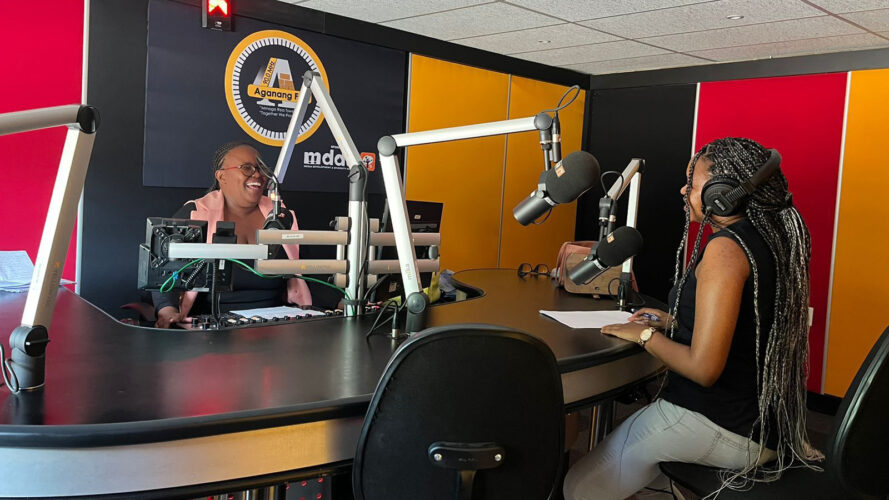The One Health approach recognizes the interconnectedness of animal, human, and environmental health. This holistic perspective is crucial for improving livestock health and production, mitigating zoonotic diseases, and improving family income, nutrition, and health, especially in rural communities. However, agro-pastoral and smallholder livestock productivity remains low in many contexts due to the impact of animal disease resulting from a lack of access to extension services, and quality animal health and production inputs.
This is where Veterinary Paraprofessionals (VPP) have a key role in supporting livestock farmers by providing preventive animal healthcare services and as reliable suppliers of veterinary medicines. In sub-Saharan Africa, VPPs outnumber veterinarians on average 10 to 1 and are more present in rural areas, with closer ties to livestock farmers. As a cost-effective and mobile alternative, VPPs are strategically positioned to enhance service delivery outreach to farmers significantly.
The challenge is that many farmers may not be aware of the benefits of investing in preventive healthcare approaches. They may not have the contact of a VPP to reach out to when in need, or they may not be able to differentiate between a VPP, a veterinarian, and someone who claims to be an animal health professional but is not qualified to provide veterinary services.
In this context, rural radio serves as a powerful and accessible tool for raising farmers’ awareness of the benefits of preventive healthcare approaches, and the One Health services VPPs provide within their communities. Women and men VPP champions had the opportunity to participate in tailored radio campaigns developed with Farm Radio International and launched in Uganda, Nigeria, and South Africa. This was a win-win situation for both VPPs and livestock farmers. It allowed farmers to learn about the benefits of preventive healthcare approaches, how they can access advice and services through VPPs, and for private sector VPPs to advertise their businesses.
The power of rural radio
- With its wide reach, affordability (it is often battery-run and does not require electricity), and local language capabilities, rural radio offers unique advantages in reaching farmers.
- It transcends geographical barriers, reaching even the most remote areas with limited infrastructure. Programmes can be broadcast in local languages, ensuring the message resonates with the target audience. Additionally, radio fosters a sense of community and allows for interactive engagement, encouraging dialogue and knowledge sharing.
What did farmers learn through the radio campaign?
- The dangers of illegal veterinary medicines and their impact on human and livestock health, including the risk of developing antimicrobial resistance.
- Qualified and registered VPPs are trusted sources of advice and suppliers of quality veterinary services, including vaccines and medicines.
- The benefits of preventive healthcare approaches to improve livestock’s health and productivity. A preventive approach avoids the costs of treatment, including the cost of lost production (decreased milk, fertility, etc.), the cost of the treatment itself (veterinary drugs and the time of the VPP), and, when treatment fails – the cost of a dead animal. The cost of prevention through vaccination or implementing improved husbandry and biosecurity measures is often much less than treatment. When prevention practices are in place, the risk of a herd of flock being sick, dead and wiped out is reduced, optimizing productivity, household income and family nutrition.
Knowledge dissemination
- Radio programmes can deliver key One Health messages, covering topics such as disease prevention, zoonotic risks, hygiene practices, and environmental sustainability.
- VPPs can be interviewed on radio programmes, sharing their expertise and experiences with a wider audience, which is also a great business opportunity to expand one’s client base.
- Interactive call-in segments can address community concerns and provide real-time feedback, ensuring the training content is relevant and addresses specific needs.
Community mobilization
- Radio programmes can mobilize communities to participate in One Health activities, such as vaccination campaigns, sanitation improvements, and environmental conservation efforts.
- VPPs can use radio to raise awareness about community resources and support systems, promoting collaboration and collective action.
- Radio can be used to share success stories and best practices, inspiring and motivating communities to adopt One Health principles.
Using gender-transformative approaches through radio
A gender disaggregated needs assessment conducted in South Africa, Nigeria and Uganda looked at the specific challenges female VPPs face in their profession due to gender. The results found that women VPPs experience pay gaps, mistrust, bias and harassment at work. This revealed a real need to, through dialogue, begin to challenge deeply rooted gender norms and beliefs that the animal health profession is not suitable for women and to raise awareness about the fact that women VPPs are just as competent at their job as their male counterparts. A key focus of the radio campaign was to provide a platform for women VPPs to speak about the positive impact of their work in the communities they serve and help farmers understand that they can count on them for quality services and support.
Article from the FAO Website

